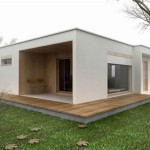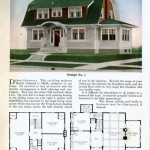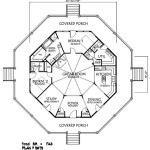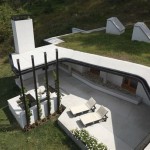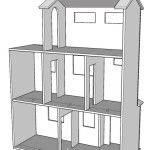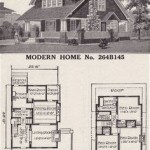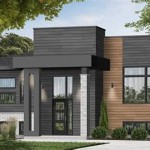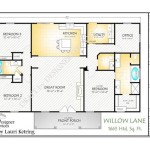Concrete block house plans provide a blueprint for constructing a building using concrete blocks, a widely used building material renowned for its strength, durability, and versatility. These plans encompass the structural design, floor layouts, elevations, and specifications necessary for constructing a house using concrete blocks.
Concrete block houses are prevalent in many parts of the world, particularly in regions prone to hurricanes and other extreme weather events. Their inherent strength and durability make them an ideal choice for withstanding high winds and impact. Additionally, concrete blocks offer excellent insulation, reducing energy consumption and providing a comfortable living environment.
Moving forward, this article will delve deeper into the advantages of concrete block house plans, exploring their various design options, construction techniques, and cost implications. By providing comprehensive information on this building method, we aim to equip readers with the knowledge to make informed decisions when considering concrete block house plans for their residential or commercial projects.
Concrete block house plans offer numerous advantages, making them a popular choice for residential and commercial construction.
- Durable and long-lasting
- Resistant to fire and pests
- Energy-efficient and soundproof
- Versatile design options
- Cost-effective compared to other materials
- Low maintenance and easy to repair
- Sustainable and environmentally friendly
- Suitable for various climates
- Enhances property value
These advantages make concrete block house plans an ideal choice for those seeking a strong, durable, and cost-effective building solution.
Durable and long-lasting
Concrete block houses are renowned for their exceptional durability and longevity, making them a wise investment for homeowners and builders alike.
- Resistance to wear and tear: Concrete blocks are highly resistant to wear and tear, making them an ideal choice for high-traffic areas and buildings exposed to harsh weather conditions. They do not rot, warp, or deteriorate easily, ensuring the structural integrity of the building for decades to come.
- Impact resistance: Concrete blocks can withstand significant impact forces, making them an excellent choice for buildings in areas prone to earthquakes, hurricanes, and other natural disasters. Their solid construction helps protect the occupants and the property from damage.
- Fire resistance: Concrete blocks are non-combustible and provide excellent fire resistance. They do not contribute to the spread of flames, providing valuable time for occupants to evacuate in the event of a fire.
- Pest resistance: Concrete blocks are not susceptible to damage from pests like termites and rodents. Their dense structure and lack of organic materials make them an unfavorable target for these pests, reducing the risk of structural damage and health hazards.
Due to their exceptional durability, concrete block houses require minimal maintenance and can last for generations with proper care. This durability translates into significant cost savings over time, as homeowners can avoid costly repairs and replacements that are common with other building materials.
Resistant to fire and pests
Fire and pests pose significant threats to buildings, compromising their structural integrity and posing health hazards to occupants. Concrete block house plans offer exceptional resistance to both fire and pests, ensuring the safety and durability of the building.
- Fire resistance: Concrete blocks are non-combustible and provide excellent fire resistance. They do not contribute to the spread of flames, providing valuable time for occupants to evacuate in the event of a fire. The dense structure of concrete blocks prevents the passage of heat and smoke, minimizing the risk of fire damage to the building and its contents.
- Pest resistance: Concrete blocks are not susceptible to damage from pests like termites and rodents. Their dense structure and lack of organic materials make them an unfavorable target for these pests, reducing the risk of structural damage and health hazards. Concrete blocks do not provide a suitable environment for pests to nest or feed, further reducing the likelihood of infestation.
The fire and pest resistance of concrete block houses translates into significant cost savings for homeowners and builders. By minimizing the risk of fire damage and pest infestations, concrete block houses reduce the need for costly repairs and replacements, lowering maintenance costs over the long term.
Energy-efficient and soundproof
Concrete block house plans offer exceptional energy efficiency and soundproofing capabilities, contributing to a comfortable and cost-effective living environment.
Energy efficiency
Concrete blocks possess a high thermal mass, which means they can absorb and store heat energy. This property helps regulate indoor temperatures, reducing the need for heating and cooling systems. In hot climates, concrete blocks absorb excess heat during the day and release it slowly at night, creating a cooler indoor environment. Conversely, in cold climates, concrete blocks store heat from the sun and release it gradually, reducing heat loss and maintaining a comfortable indoor temperature.
The dense structure of concrete blocks also provides excellent insulation against heat transfer. This reduces the amount of heat that escapes from the building during winter and prevents excessive heat gain during summer, resulting in lower energy consumption and cost savings on heating and cooling bills.
Soundproofing
Concrete blocks are highly effective in dampening sound transmission, making them an ideal choice for buildings in noisy environments or for creating quiet spaces within a home. The dense structure of concrete blocks absorbs sound waves, reducing noise levels and creating a more peaceful and comfortable living environment.
Interior walls made of concrete blocks can significantly reduce noise transmission between rooms, ensuring privacy and minimizing disturbances. Additionally, exterior walls constructed with concrete blocks can effectively block out noise from outside sources, such as traffic, construction, or loud neighbors.
The soundproofing capabilities of concrete block house plans contribute to improved sleep quality, reduced stress levels, and a more enjoyable living experience.
Versatile design options
Concrete block house plans offer a wide range of design options, allowing architects and homeowners to create unique and visually appealing structures. The versatility of concrete blocks enables the creation of diverse architectural styles, from traditional to modern and everything in between.
- Variety of shapes and sizes: Concrete blocks come in various shapes and sizes, including standard rectangular blocks, split-face blocks, and decorative blocks. This variety allows for creative use of textures, patterns, and colors to enhance the aesthetic appeal of the building.
- Flexible layouts: The modular nature of concrete blocks makes them highly adaptable to different floor plans and layouts. Architects can design houses with complex shapes, multiple stories, and open floor plans without compromising structural integrity.
- Customizable finishes: Concrete blocks can be painted, stained, or covered with various finishes such as stucco, stone veneer, or siding. This versatility allows homeowners to customize the exterior and interior of their homes to suit their personal preferences and architectural style.
- Integration with other materials: Concrete blocks can be seamlessly integrated with other building materials such as wood, glass, and metal. This flexibility enables architects to create visually striking combinations of textures and styles, adding depth and character to the design.
The versatility of concrete block house plans empowers architects and homeowners to design homes that are not only durable and energy-efficient but also visually appealing and unique.
Cost-effective compared to other materials
Concrete block house plans offer significant cost advantages compared to other building materials, making them an economical choice for homeowners and builders.
- Competitive material costs: Concrete blocks are a relatively inexpensive building material, especially when compared to other masonry materials such as brick or stone. Their local availability and ease of production contribute to their cost-effectiveness.
- Reduced labor costs: Concrete blocks are larger and easier to handle than other masonry units, which reduces labor costs during construction. Their modular design allows for faster and more efficient installation, further minimizing labor expenses.
- Lower maintenance costs: Concrete blocks are highly durable and require minimal maintenance. Their resistance to moisture, pests, and fire damage reduces the need for costly repairs and replacements over the lifespan of the building, resulting in significant savings on maintenance costs.
- Energy efficiency: The thermal mass of concrete blocks contributes to energy efficiency, reducing heating and cooling costs. The dense structure of concrete blocks provides excellent insulation, minimizing heat transfer and lowering energy consumption.
When considering the long-term costs of a building, concrete block house plans offer a cost-effective solution that balances initial construction costs with low maintenance expenses and energy efficiency.
In addition to the direct cost savings, concrete block houses can also enhance property value. Their durability, energy efficiency, and low maintenance requirements make them attractive to potential buyers, contributing to a higher resale value.
Low maintenance and easy to repair
Concrete block houses require minimal maintenance, reducing the time and cost associated with upkeep. Their durable nature and resistance to various elements contribute to their low-maintenance characteristics.
- Resistance to moisture and pests: Concrete blocks are highly resistant to moisture penetration and pest infestations. This resistance reduces the risk of mold, rot, and structural damage, eliminating the need for frequent repairs and costly treatments.
- Durable exterior: The dense structure of concrete blocks withstands harsh weather conditions, including strong winds, rain, and UV rays. This durability reduces the need for exterior maintenance, such as painting or siding replacement.
- Easy cleaning: Concrete blocks have a smooth surface that is easy to clean and maintain. Dirt and grime can be easily removed with a simple wash, eliminating the need for specialized cleaning methods or harsh chemicals.
- Simple repairs: In the event of any damage, concrete blocks can be easily repaired using a patching compound or mortar. The modular nature of concrete blocks allows for individual blocks to be replaced without compromising the structural integrity of the building.
The low maintenance requirements of concrete block houses translate into significant savings on repair and maintenance costs over the lifespan of the building. Homeowners can enjoy a hassle-free living experience, spending less time and money on upkeep, and more time enjoying their homes.
Sustainable and environmentally friendly
Concrete block house plans promote sustainability and environmental friendliness through various aspects of their design and construction.
- Energy efficiency: The thermal mass of concrete blocks contributes to energy efficiency, reducing heating and cooling costs. The dense structure of concrete blocks provides excellent insulation, minimizing heat transfer and lowering energy consumption. This energy efficiency not only saves money on utility bills but also reduces greenhouse gas emissions associated with energy production.
- Reduced waste: Concrete blocks are produced using locally available materials, minimizing transportation costs and reducing the carbon footprint associated with long-distance transportation. Additionally, the modular nature of concrete blocks minimizes waste during construction, as they can be easily cut and shaped to fit specific design requirements.
- Durability: The durability of concrete block houses reduces the need for frequent repairs and replacements, contributing to sustainability. The long lifespan of concrete blocks means that fewer resources are required to maintain and rebuild structures over time.
- Recyclability: Concrete blocks can be recycled at the end of their lifespan, reducing construction waste and conserving natural resources. Recycled concrete blocks can be used as aggregate in new concrete mixes, further promoting sustainability.
By incorporating sustainable and environmentally friendly practices, concrete block house plans contribute to a greener and more sustainable built environment.
Suitable for various climates
Concrete block house plans are highly adaptable to various climates, offering unique advantages and benefits in each environment.
Hot and humid climates
In hot and humid climates, concrete block houses provide excellent thermal mass, which helps regulate indoor temperatures. The dense structure of concrete blocks absorbs and stores heat during the day, releasing it slowly at night. This natural thermal regulation reduces the need for air conditioning, lowering energy consumption and creating a more comfortable indoor environment.
### Cold and dry climates
In cold and dry climates, concrete block houses offer superior insulation and energy efficiency. The dense structure of concrete blocks minimizes heat transfer, reducing heat loss during the winter months. Additionally, the thermal mass of concrete blocks helps store heat from the sun, providing a more stable indoor temperature and reducing heating costs.
### Coastal climates
In coastal climates, concrete block houses are highly resistant to moisture and salt corrosion. The dense structure of concrete blocks prevents moisture penetration, reducing the risk of mold, mildew, and structural damage. Additionally, concrete blocks are resistant to salt corrosion, making them an ideal choice for homes located near the ocean.
### Extreme weather climates
In areas prone to hurricanes, earthquakes, and other extreme weather events, concrete block houses provide exceptional durability and resilience. The interlocking design of concrete blocks creates a strong and stable structure that can withstand high winds and seismic forces. Additionally, the non-combustible nature of concrete blocks reduces the risk of fire damage during wildfires.
The versatility of concrete block house plans makes them suitable for a wide range of climates and environmental conditions. Their ability to adapt to different climates ensures that homeowners can enjoy the benefits of concrete block construction regardless of their location.
Enhances property value
Concrete block house plans contribute significantly to enhancing the property value of a home. The unique characteristics and benefits of concrete block construction make these homes highly desirable among potential buyers, leading to increased resale value.
- Durability and longevity: Concrete block houses are renowned for their exceptional durability and longevity. Their resistance to fire, pests, and harsh weather conditions ensures that these homes stand the test of time, providing peace of mind to homeowners and increasing the property’s value in the long run.
- Energy efficiency: The thermal mass of concrete blocks contributes to energy efficiency, reducing heating and cooling costs. This energy efficiency not only lowers monthly expenses for homeowners but also appeals to buyers looking for eco-friendly and cost-effective homes, enhancing the property’s value.
- Low maintenance: Concrete block houses require minimal maintenance, reducing the time and cost associated with upkeep. Their durable nature and resistance to various elements make these homes hassle-free to own, increasing their desirability and, consequently, their property value.
- Aesthetic appeal: Concrete block houses can be designed in a variety of architectural styles, from traditional to modern. The versatility of concrete blocks allows for creative use of textures, patterns, and colors, enhancing the aesthetic appeal of the home and increasing its curb appeal, which can positively impact property value.
By incorporating concrete block house plans, homeowners can not only enjoy the numerous benefits of this durable and energy-efficient building material but also make a wise investment that enhances the property value of their home.







Related Posts

